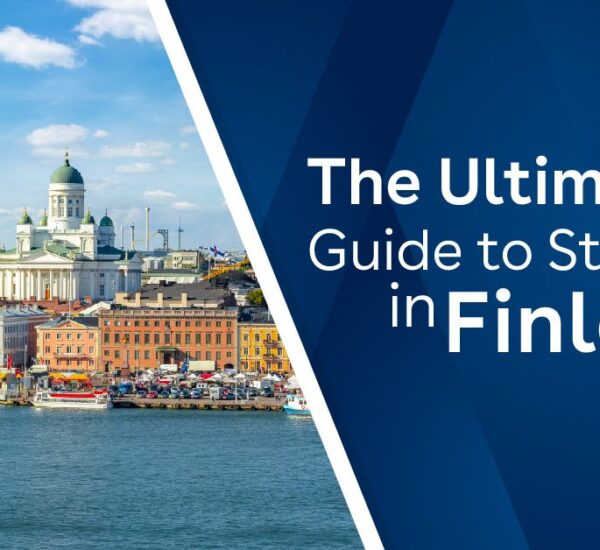Studying abroad is everyone’s dream—meeting new people, immersing yourself in a new culture, and living in a foreign country offer experiences and adventures that last a lifetime. Yet tuition and living expenses often stand as barriers. What if you could pursue a world‑class education almost for free? In this article, we explore the top six countries offering free education to international students—from Germany to Finland—complete with details on tuition, living costs, visa requirements, and application tips.
1. Study in Germany: Europe’s Tuition‑Free Pioneer
Why Study in Germany?
No Tuition Fees at public universities—applies to both EU and international students
Only a small semester fee (€100–€350) covers administrative costs, public transport, and campus services
Full‑ride scholarships (e.g., DAAD) and monthly stipends (€850+) available
Top Tuition‑Free Universities in Germany
| University | QS World Ranking 2024 | Location | Popular Fields |
|---|---|---|---|
| Technical University of Munich (TUM) | 49 | Munich | Engineering, Computer Science |
| Ludwig Maximilians University (LMU Munich) | 61 | Munich | Humanities, Natural Sciences |
| Heidelberg University | 64 | Heidelberg | Life Sciences, Social Sciences |
| Humboldt University of Berlin | 82 | Berlin | Arts, Law, Natural Sciences |
| University of Freiburg | 126 | Freiburg | Medicine, Environmental Sciences |
Application Process & Visa
Language: Most Bachelor’s programs in German (TestDaF/DSH); Master’s in English (IELTS 6.5/TOEFL 90)
Apply via university portals (e.g., Uni‑Assist) by July for winter term
Student Visa (National Visa D – Study):
- Documents: Admission letter, proof of €11,208/year blocked account, health insurance, passport
- Processing: 4–12 weeks at German consulate
Residence Permit: Register at Einwohnermeldeamt within 14 days of arrival
Living Costs
Accommodation: €200–€400/month (student dorm); €400–€700 (shared flat)
Monthly Budget: €850–€1,100 (including food, transport, leisure)
2. Study in France: Culture, Cuisine & Accessible Fees
Why Study in France?
- Low Tuition at public universities:
- Bachelor’s: €170/year
- Master’s: €243/year
- PhD: €380/year
Grande Écoles & universities offer partial or full scholarships (Eiffel, Erasmus+)
Rich cultural life, world‑class museums, and French language immersion
Top Institutions
| Institution | QS World Ranking 2024 | Location | Strengths |
|---|---|---|---|
| Sorbonne University | 85 | Paris | Arts & Humanities, Medicine |
| École Normale Supérieure, Paris | 119 | Paris | Sciences, Humanities |
| École Polytechnique | 120 | Palaiseau | Engineering, Physics |
| University of Paris–Saclay | 127 | Saclay | Sciences, Engineering |
| Sciences Po | 247 | Paris | Political Science, International Relations |
Application & Visa
- Language: French B2 for most programs; English-taught Master’s widely available
- Apply via Campus France by January for September intake
- Student Visa (Long‑stay):
- Documents: Campus France certificate, proof €615/month, health cover, accommodation proof
- Process: 2–4 weeks, validation with OFII upon arrival
Living Costs
Accommodation: €300–€600/month (Paris); €200–€400 (other cities)
Monthly Budget: €1,000–€1,300 in Paris; €800–€1,000 elsewhere
3. Study in Belgium: Multilingual & Multicultural Hub
Why Study in Belgium?
- Affordable Tuition: €900–€4,000/year at public universities
- Official Languages: French, Dutch, and German — many English‑taught Master’s programs
- Heart of the EU institutions and international organizations
Premier Institutions
| University | QS World Ranking 2024 | Location | Notable Programs |
|---|---|---|---|
| KU Leuven | 59 | Leuven | Engineering, Law, Biomedical Sci. |
| Université Catholique de Louvain (UCL) | 75 | Louvain‑la‑Neuve | Public Policy, Medicine |
| Ghent University | 117 | Ghent | Life Sciences, Chemical Engineering |
Application & Visa
- Language: French / Dutch B2; English tests accepted for English programs (IELTS 6.5/TOEFL 90)
- Apply via individual university portals by April–May for September entry
- Student Visa (D‑Type):
- Documents: Letter of admission, proof €860/month, medical certificate, background check
- Duration: Valid 1 year, renewable
Living Costs
Accommodation: €300–€500/month (student halls); €450–€700 (flatshare)
Monthly Budget: €900–€1,200
4. Study in Norway: Free Tuition at a Pricey Lifestyle
Why Study in Norway?
- No Tuition Fees at public universities—applies to all international students
- High living costs offset by work rights (up to 20 hrs/week) and generous scholarships (Quota, Erasmus+)
- Spectacular natural beauty, outdoor lifestyle, and high English proficiency
Leading Universities
| University | QS World Ranking 2024 | Location | Key Disciplines |
|---|---|---|---|
| University of Oslo | 112 | Oslo | Humanities, Law, Medicine |
| Norwegian University of Science & Technology (NTNU) | 113 | Trondheim | Engineering, Architecture |
| University of Bergen | 209 | Bergen | Marine Sciences, Climate Research |
Application & Visa
- Language: Norwegian (B2) for most; English-taught (IELTS 6.5/TOEFL 90) widely available
- Apply via NOKUT portal March 1–April 15 (Master’s)
- Student Residence Permit:
- Documents: Admission letter, NOK 126,357/year proof, insurance, accommodation
- Processing: 2–3 months
Living Costs
Accommodation: NOK 3,000–6,000/month (€270–€540)
Monthly Budget: NOK 12,000–15,000 (€1,080–€1,350)
5. Study in the Czech Republic: Central Europe’s Hidden Gem
Why Study in Czech Republic?
- Free Czech‑taught programs at public universities for all students
- English‑taught degrees with tuition €0–2,000/year
- Affordable living and vibrant student life in Prague and Brno
Top Universities
| University | QS EECA Ranking 2023 | Location | Strengths |
|---|---|---|---|
| Charles University (Prague) | 147 | Prague | Medicine, Arts & Humanities |
| Czech Technical University (CTU) | 136 | Prague | Engineering, Computer Science |
| Masaryk University (Brno) | 188 | Brno | Social Sciences, Biology |
Application & Visa
- Language: Czech B2 (C1 for some); English tests for English programs (IELTS 6.0/TOEFL 80)
- Apply directly to universities by May for September intake
- Long‑term Student Visa:
- Documents: Admission, proof €4,500/year, insurance, clean record
- Processing: 60 days
Living Costs
Accommodation: €150–€300/month (dorm); €300–€500 (private)
Monthly Budget: €500–€700
6. Study in Finland: Nordic Excellence & Innovative Education
Why Study in Finland?
- Free tuition for EU/EEA students; non‑EU pay €8,000–€18,000/year for English programs
- PhD programs are tuition‑free for all students
- Pioneer in innovative pedagogy, start‑up ecosystem, and English proficiency
Premier Institutions
| University | QS World Ranking 2024 | Location | Highlights |
|---|---|---|---|
| University of Helsinki | 104 | Helsinki | Research, Life Sciences |
| Aalto University | 137 | Espoo | Technology, Design, Business |
| University of Turku | 287 | Turku | Marine Sciences, Medicine |
Application & Visa
- Language: English (IELTS 6.5/TOEFL 100) or Finnish/Swedish tests for local programs
- Apply via Studyinfo.fi January 1– February 2 for autumn start
- Residence Permit for Studies:
- Documents: Admission, €560/month proof, insurance, health certificate
- Processing: 1–3 months
Living Costs
- Accommodation: €300–€500/month (student housing)
- Monthly Budget: €700–€1,000
Conclusion
Pursuing a university education abroad no longer has to break the bank. From tuition‑free German engineering to nominal fees in France, Belgium, Norway, the Czech Republic, and Finland, you have multiple affordable pathways:
- Study in Germany: Engineering, Research, Free Tuition
- Study in France: Culture, Gastronomy, Low Fees
- Study in Belgium: Multilingual, EU Institutions, Affordable Tuition
- Study in Norway: Free Tuition, Outdoor Lifestyle, High Living Costs (Balanced by Work Rights)
- Study in Czech Republic: Free Czech‑taught Programs, Low-Cost English Degrees
- Study in Finland: Nordic Innovation, Free PhDs, Tuition Waivers for EU Students
Next Steps:
Choose your destination and program based on your career goals.
Check admission and visa requirements early—most application windows close by spring.
Prepare language tests (IELTS/TOEFL/PTE) or qualify via English‑medium prior education.
Apply for scholarships (DAAD, Eiffel, Erasmus+, national and university grants).
Plan your budget and accommodation, and start your visa application 3–6 months in advance.
Ready to make your dream a reality? Comment below with your target country and program, and let’s get you on the path to a life‑changing international education!


